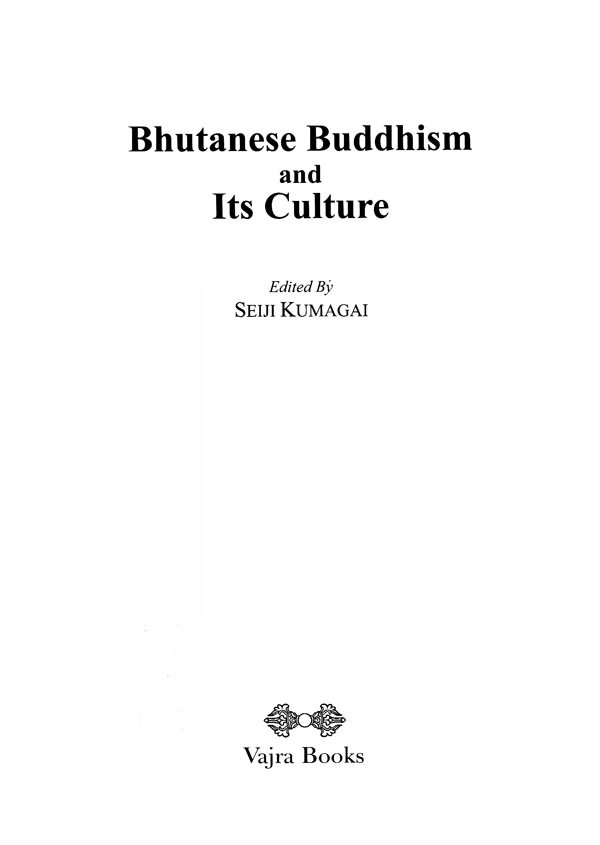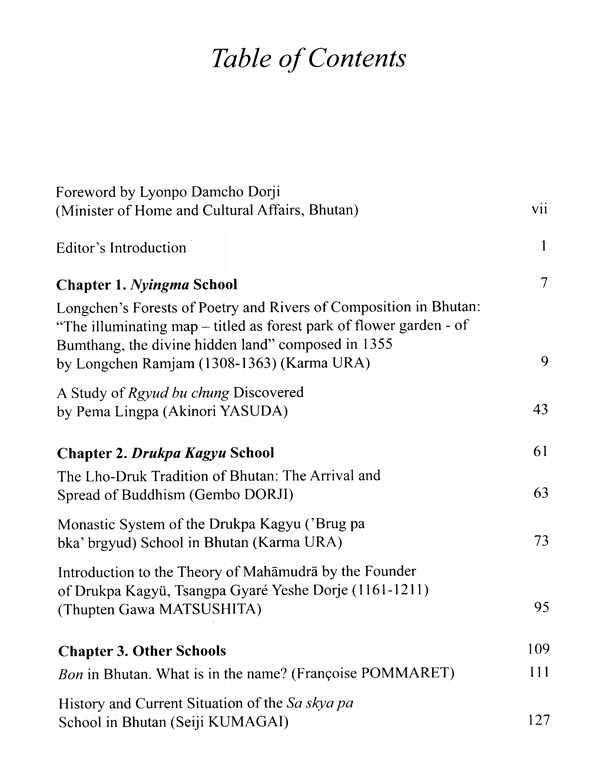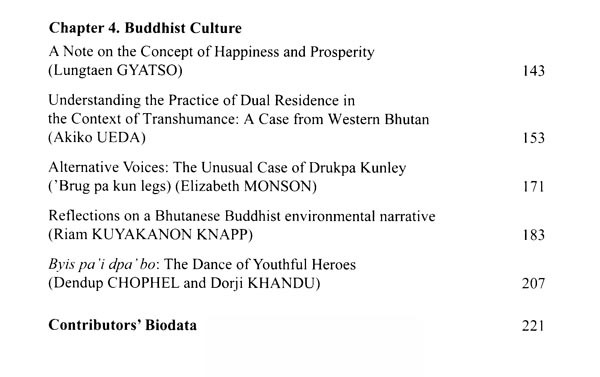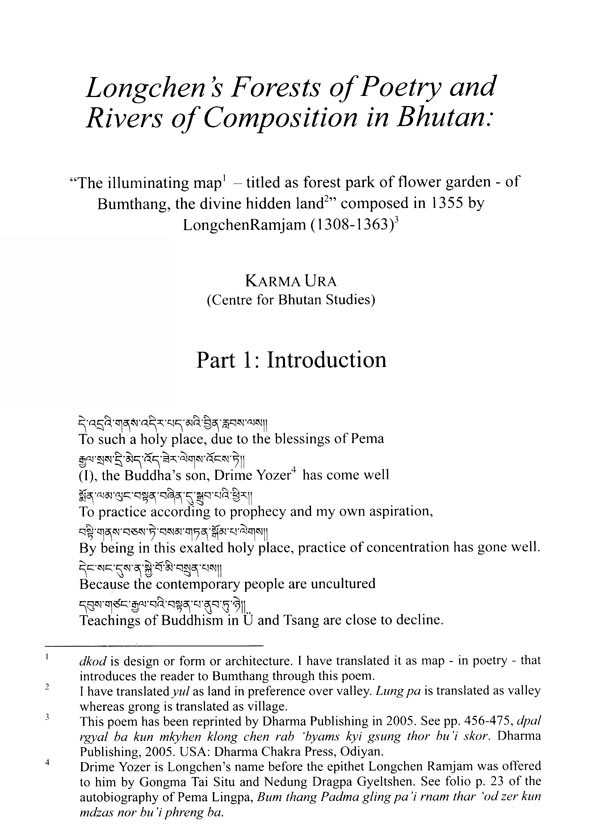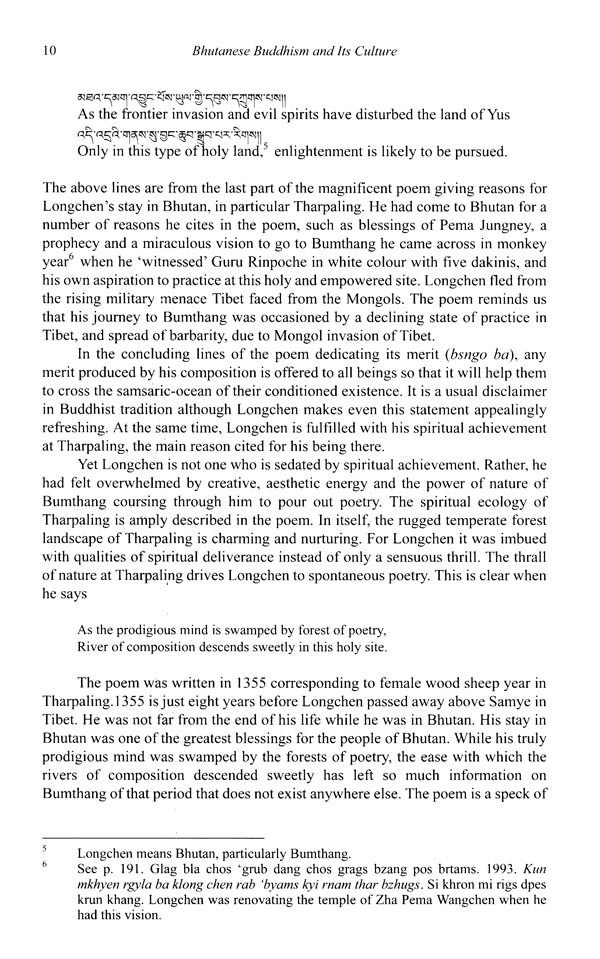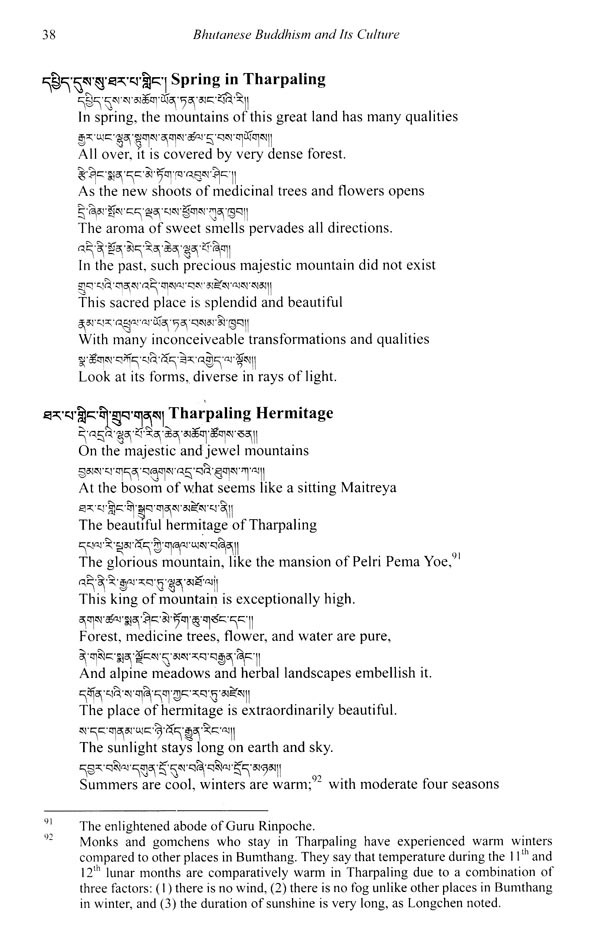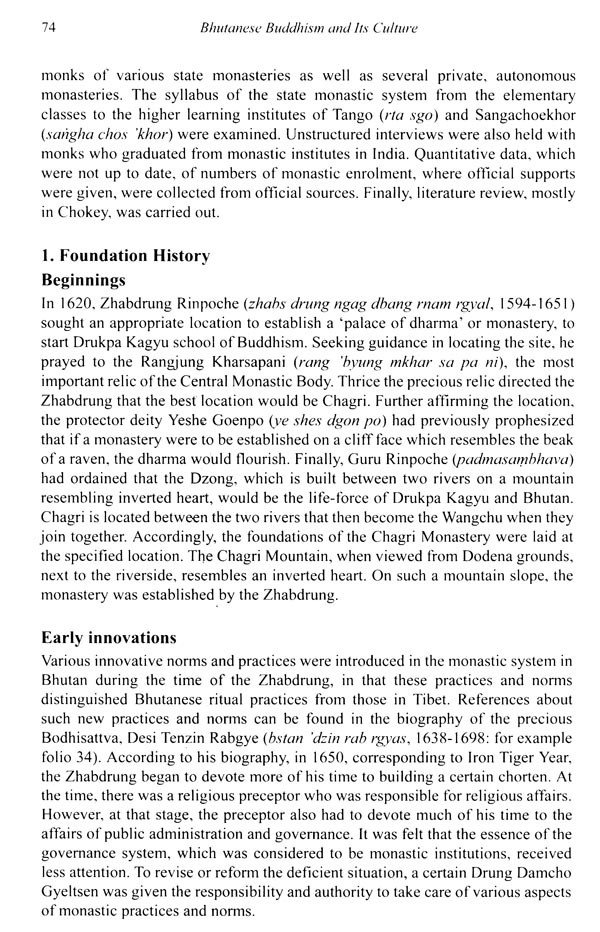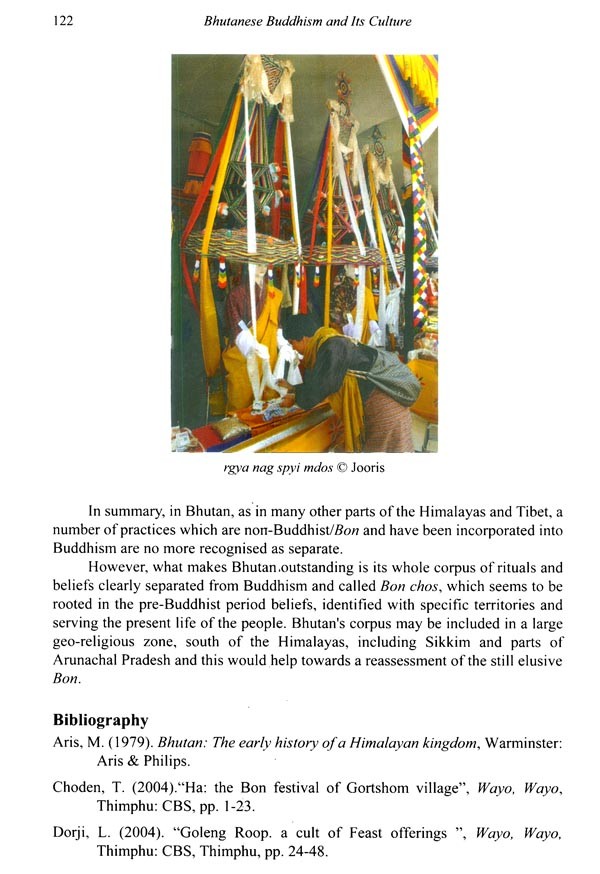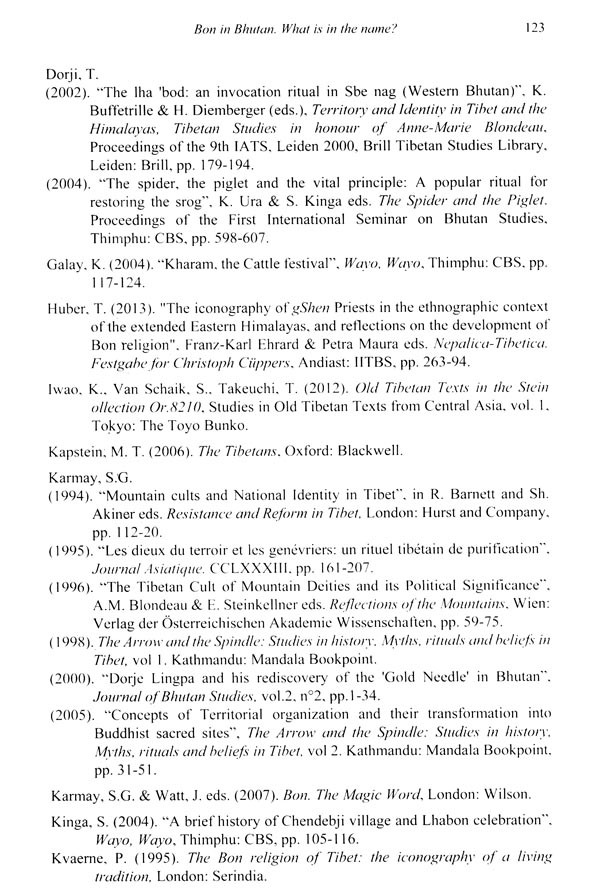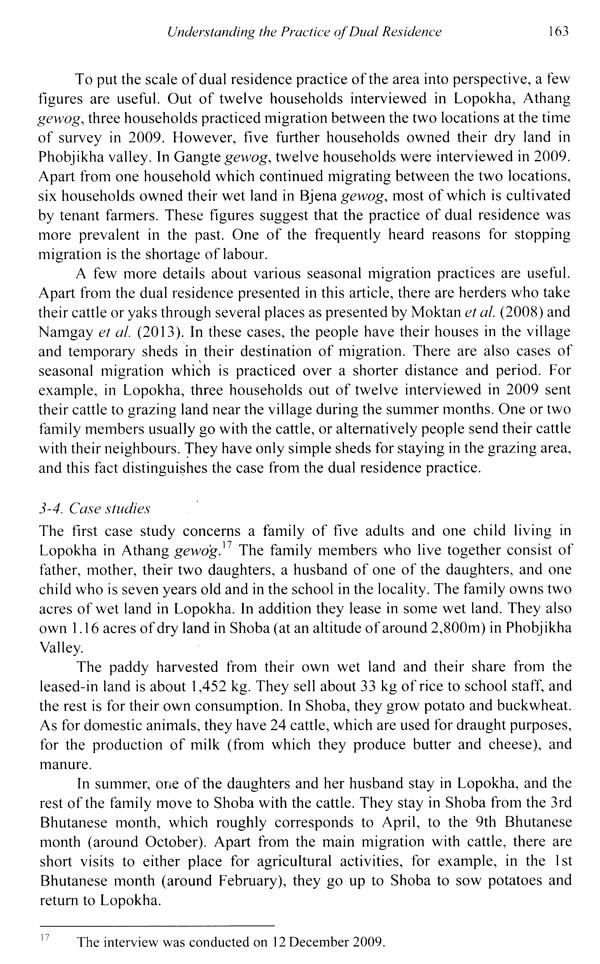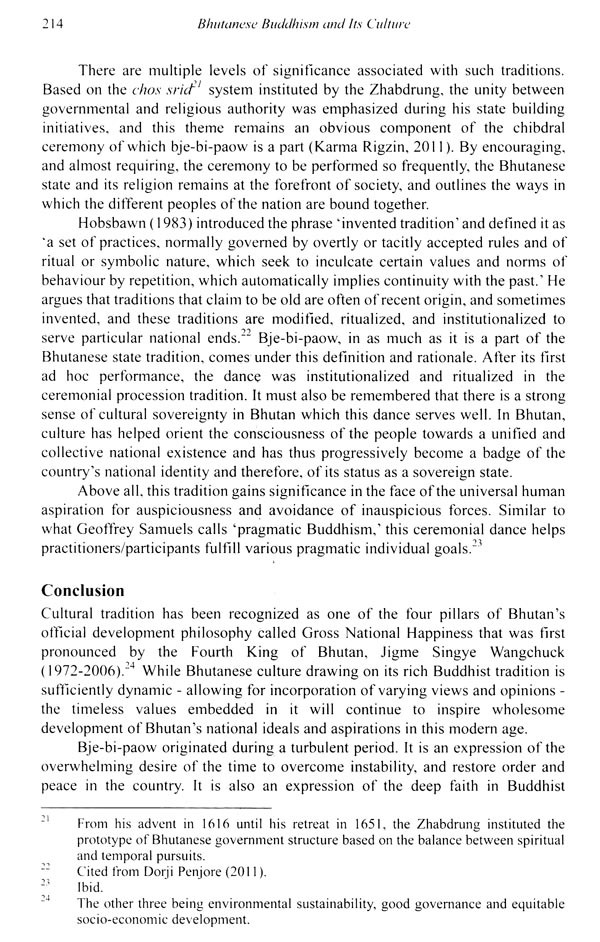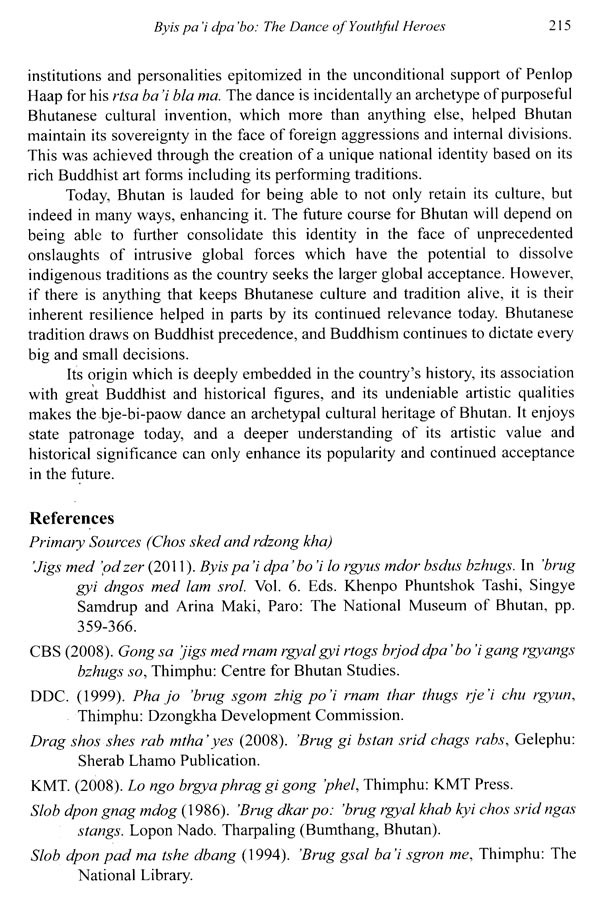
Bhutanese Buddhism and Its Culture
Book Specification
| Item Code: | UAO553 |
| Author: | Seiji Kumagai |
| Publisher: | Vajra Books, Nepal |
| Language: | Tibetan and English |
| Edition: | 2014 |
| ISBN: | 9789937623230 |
| Pages: | 228 (Throughout Color Illustrations) |
| Cover: | HARDCOVER |
| Other Details | 9.50 X 7.00 inch |
| Weight | 690 gm |
Book Description
Bhutanese Buddhism and Its Culture is a comprehensive introduction to the country's diverse Buddhist traditions, as well as its unique statecraft, monasticism and people's general way of life, all of which form the culture of the country.
The publication of this book is a part of the initiative of the Bhutanese Buddhism Research Project (BBRP) based in Kyoto University to promote the academic study of Bhutan and enhance cooperation between scholars of different specializations and regions.
Leading researchers on Bhutan have come together to work on this book which carries scholarly text and field based reports and papers on two major Buddhist schools in Bhutan, its pre-Buddhist religion Bon, and the popular culture of the people. It is hoped that the timely publication of this book will promote a greater understanding of the spirituality of the Bhutanese people today by analyzing historical precedents, and their concern towards the wellbeing and happiness of all beings.
his timely book on Bhutanese Buddhism Its Culture, Kumagai has brought to fore the unique tradition Bhutanese Buddhism and the culture emanating from it. is with great delight that accepted chance to write the Foreword this important book in hope that this tradition preserved promoted the wellbeing generations Bhutan.
Bhutan has on its part put up some of the most wholesome development. policies, ranging from cultural and environmental preservation to tourism management so that the country is not overwhelmed by the disorienting impulse of development that is the undoing of far stronger and bigger nations than it is Therefore, the country has adopted an overarching development philosophy called Gross National Happiness (GNH).
In a country that has a Buddhist civilization of over a thousand years, every big and small decision it takes is invariably dictated by a concern for all, human and non-human alike. It seems only natural that in seeking happiness for all people living there, the leaders of this country who are revered as Boddhisattva Kings will not compromise on the present state that the country enjoys. Bhutan is a country capable of taking a hard look at itself before embarking on projects that only concern the provision of momentary and fleeting pleasures.
Thus, this book seeks to analyze the inner workings that translate into well thought out policies that make Bhutan such a unique country. In this introduction. we will first look at the overarching philosophy of the country and how it is being received today. We will then probe through multiple approaches into the various facets of the country's deep held belief system that make such well-rounded outlook to life possible.
Importance of Gross National Happiness and Happiness Studies The industrial revolution that occurred in the middle of the eighteenth century has brought about explosive technological innovation and economic growth. As a result of the drastic changes and developments in technology and industry, people in advanced countries have come to enjoy a more convenient lifestyle, abundant products, the ability to choose their occupation freely, and the possibility of a longer life, thus enabling them to live a supposedly ideal life.
**Contents and Sample Pages**
